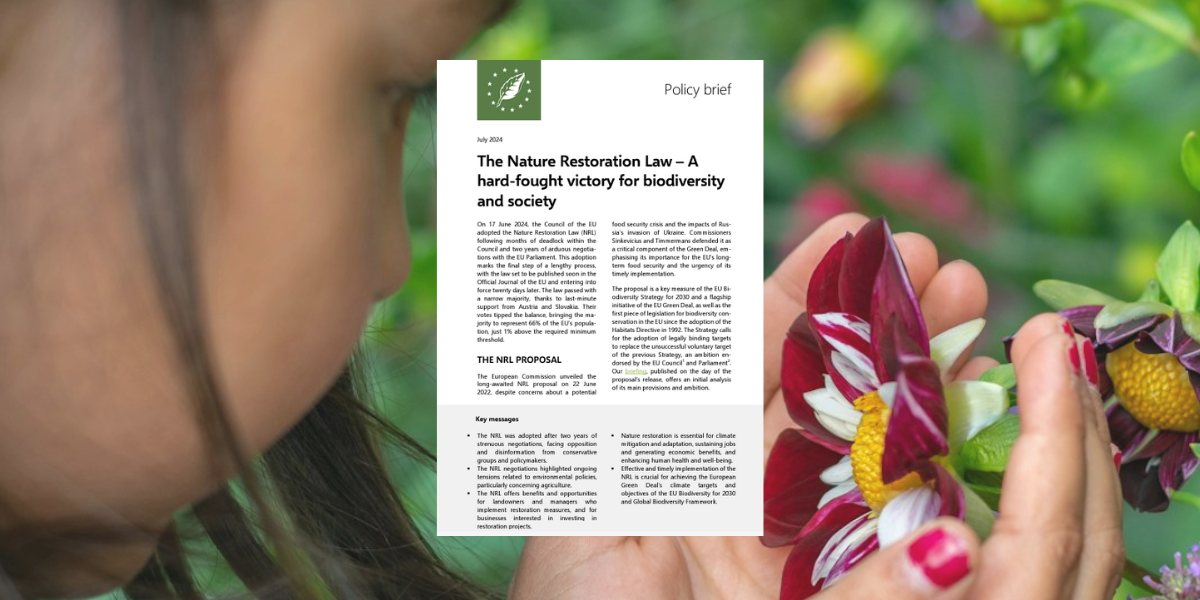AUTHORS: Gabrielle Aubert and Evelyn Underwood
The Nature Restoration Law marks a significant milestone in Europe’s commitment to protect biodiversity and to achieve its objectives under the EU Biodiversity Strategy for 2030 and the Global Biodiversity Framework as well as the European Green Deal.
Despite facing numerous challenges and fierce opposition throughout the negotiations, its adoption is a crucial step toward securing a healthier and more resilient future for both nature and people, including for farmers, foresters and fishers who will be implementing the restoration measures on the ground.
This briefing delves into the negotiation journey of the Nature Restoration Law (NRL), from its publication by the European Commission in June 2022 to its final adoption by the Council of the European Union in June 2024. It examines the opposition from certain Member States and conservative Members of Parliament, which led to a political deadlock. Despite the challenges, a positive outcome was achieved in the European Parliament through trilogue negotiations. The NRL negotiations highlighted and intensified existing tensions and pushback over European Green Deal policies, marking a significant struggle between environmental and conservative groups. The persistent efforts and campaigning by civil society organisations, business groups, and cities played a crucial role in reaching this successful conclusion.
With the NRL now adopted, it is essential to recognise its positive implications and opportunities for people and the environment. Member States will now have to implement legislation that will bring numerous benefits, including climate change mitigation and adaptation. These efforts will enhance resilience against floods, droughts, extreme heat and erosion. Additionally, the NRL is vital for ensuring the EU’s food security by restoring agricultural services such as soil productivity and crop pollination.
The NRL will soon enter into force and will be directly applicable to all Member States. They will have two years to prepare and submit their National Restoration Plans, a fundamental element of the successful implementation of the NRL and the achievement of its targets. This process must involve active and transparent participation from civil society and relevant stakeholders and ensure coordination with government departments related to agriculture, forestry, fisheries, energy, urban planning and finance.
This briefing suggests that:
- The Nature Restoration Law offers benefits and opportunities for landowners and managers who implement restoration measures, and for businesses interested in investing in restoration projects.
- Nature restoration is essential for climate mitigation and adaptation, sustaining jobs and generating economic benefits, and enhancing human health and well-being.
- Effective and timely implementation of the NRL is crucial for achieving the European Green Deal’s climate targets and objectives of the EU Biodiversity for 2030 and Global Biodiversity Framework.
Photo by Paula Corberan on Unsplash



